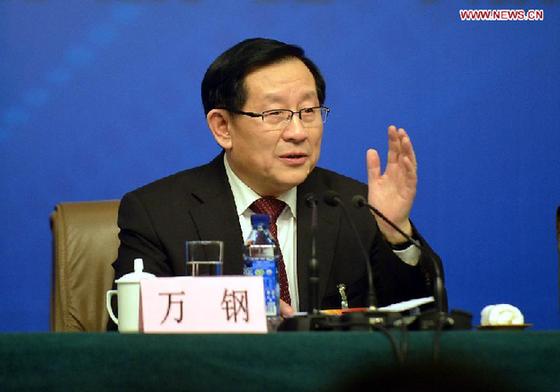China wants helping hands to combat air pollution
 0 Comment(s)
0 Comment(s) Print
Print E-mail Xinhua, March 8, 2013
E-mail Xinhua, March 8, 2013
Minister of Science and Technology Wan Gang said Thursday that China hopes to use new technologies from foreign countries to tackle its own problem of air pollution.
 |
|
Wan Gang, the minister of science and technology, speaks at a press conference held by the first session of the 12th National People's Congress (NPC) in Beijing, capital of China, March 7, 2013. [Xinhua] |
"We pay great attention to international cooperation on science and technology," Wan said when asked about the possibility of China-Japan cooperation on environmental protection at a press conference on the sidelines of ongoing annual parliamentary session.
The minister's remarks came after hazardous smog has repeatedly blanketed the national capital and most parts of the country's eastern and central regions since January, raising widespread concern both at home and abroad.
Air pollution costs China combined economic losses equivalent to about 1.2 percent of its gross domestic product every year, if calculated in terms of treatment for pollution-related disease, according to a report released by Asian Development Bank in January.
Yan Aoshuang, a deputy to the 12th National People's Congress, China's top legislature, said Beijing should learn about combating air pollution from other cities around the world, as pollution has posed "severe challenges" to the country.
At the press conference, she said the central government and Beijing Municipality have reached a consensus on reducing air pollution in the capital.
"We are seeking advanced technologies from across the globe to apply to our anti-pollution drive," she said.
The Ministry of Science and Technology, the Ministry of Environmental Protection (MOEP) and Beijing Municipality have started a joint research project in a bid to come up with a Blue Skies Initiative Plan for the capital, she added.
In January, the MOEP said the total output of environmental protection industries is expected to reach 4.5 trillion yuan (about 717 billion U.S. dollars) by 2015.





